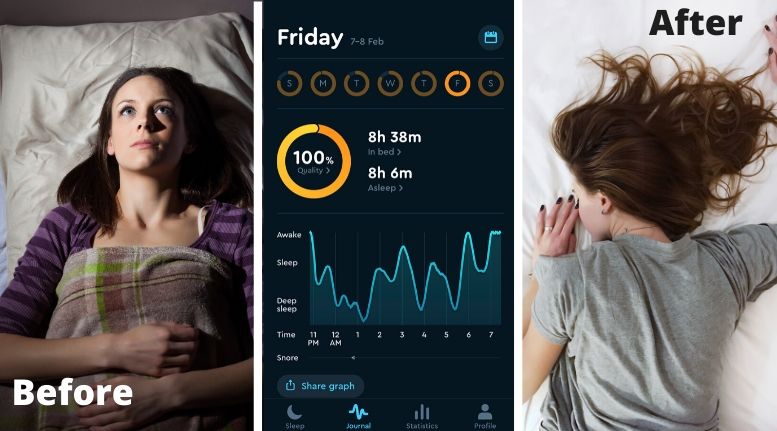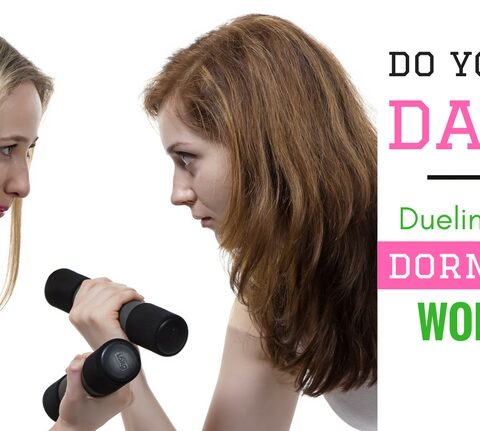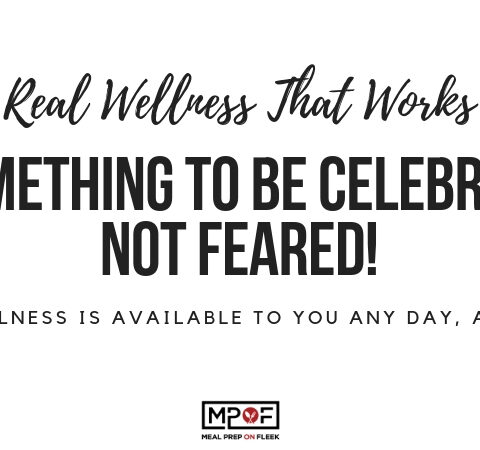Sleep, Wonderful, Sleep!
Why is sleep so awesome and how do I get more of it?
Isn't sleep amazing? It is the time of day that anyone over 15 generally looks forward to. It is obvious that we feel better when we do it. We inherently know that it has a restorative quality to it that we all need. There is nothing like falling into bed after a busy day and then waking up refreshed; not tired anymore. When you have had a good night's sleep it is as if your brain works better and you are ready to focus on the tasks at hand.
Studies show that sleep actively helps memory. It is controversial as to whether it really helps to pull that “all-nighter” before the college final. Did it really help to go to that 8:00 AM exam exhausted? I don’t think so! It seems that the data shows that you can focus easier and facts will be recalled better if you get a good night’s rest.
Likewise, overall health can be affected for better or for worse by sleep.
Bad news first. There are more, but here are some reasons:
- Greater risk for Type 2 Diabetes - Sleeping less than 6 hours a night has repeatedly been shown to put people at greater risk of insulin resistance and developing type 2 diabetes.
- Mental Health - Mental health issues are strongly related to poor sleep, especially if there is a sleep disorder like insomnia or sleep apnea involved. Did you know that 90% of people that struggle with depression also complain of difficulty with their sleep?
- Immune deficiency - It might be no surprise that a person is 3x more susceptible to becoming ill by not sleeping well. There is evidence that during those times the immune system is weakened making one a prime target during cold and flu season.
- Obesity - There are strong links found between short sleep duration and poor success in weight loss. In fact, not getting enough sleep is one of the biggest risk factors for obesity. There seem to be numerous links from lack of motivation for exercise, to hormone interference.
- Increased inflammation - Poor sleep has been linked to increased inflammation in the digestive tract and inflammatory bowel diseases. For those that suffer from chronic digestive diseases (for example, Crohn’s disease) sleep loss has been linked to more frequent relapses. Here are 10 foods that fight inflammation
There is good news too:
One of the most important jobs of sleep is to help us sort out and consolidate memories. All throughout our day, our brains take in mega amounts of information. We don’t always conscientiously even realize all that we are taking in; there is way too much! Facts we learned and the things we experience in the daytime need to be processed and stored in the correct parts of our brains. Much of this is done at night while we sleep.
We don’t even realize it, but our sleep allows the bits and pieces of information that we have collected throughout our waking hours to be transferred from our short-term memories to our more permanent long-term memory banks. This is a process called “consolidation”. Consolidation is one of the main reasons why after a good sleep that people are more likely to retain information.
We can not underestimate the incredible restorative effects of sleep. They are so obvious; you can tell that you feel good, focus better, and you aren’t tired all the time. Long, restful, uninterrupted sleep allows our bodies to rejuvenate, synthesize hormones, repair tissue, and even grow muscle. No wonder sleep is so awesome!!
Want to achieve 100% sleep quality, like we did? Keep reading!
What is a perfect night's sleep?
You may be asking yourself this very question. We know that sleep is awesome, but what constitutes that perfect night of sleep? Is it the time of day when your body and brain just shuts down? Well, no, as we have already said, your brain is actually very active and proactive in getting you ready for the next day. It is actually working and overseeing all the functions of your resting body. So you need to give yourself enough hours of sleep in order to give the time your brain needs to do its amazing work.
Imagine your sleep for yourself like the maintenance you do for your car. You know if you skimp on regular oil changes on your car (if you can follow my analogy here), you will be headed for a mechanical breakdown in the near future. So it is with sleep. It surely is not something that you want to cut corners on.
So while the number of hours you spend sleeping are important, so is the quality of those hours. It is possible to get enough sleep timewise, but somehow the time doesn’t follow through the stages of the sleep cycle so that you are still waking up tired and not refreshed. If you find you are sleeping a good 8 hours, but are not waking up feeling well, it might be time to consult your physician as to why that might be.
As we go nighty-night, we differ in the number of different stages of sleep and each one is important in its own right. NREM is important for restoring and repairing our bodies and building up energy for the day ahead. REM sleep, which stands for Rapid Eye Movement, is during our dreaming phase where most of the work on our minds and memory categorizing takes place. To ensure that you get more and better sleep, you should avoid getting woken up in the middle of the night by noise or light. That’s right, don’t bring your cell phone to bed with you!! Alcohol consumption and also nicotine has been known to be sleep stealers as well. To learn more about the science of sleep, see here.
Are there different types of sleep?
There are only 2 different types of sleep, but at least 4 different stages. A cycle of these stages lasts typically 90-120 minutes. Three of those stages are NREM (non-rapid eye movement) with one stage of REM (rapid eye movement) sleep in each cycle.
Most people start a sleep cycle with a short period of stage one (NREM-1) which is generally characterized by slower eye movements at the beginning and the body is beginning to relax. This is obviously the easiest stage in which to rouse a person.
Stage two, (NREM-2) comes next and is usually the longest stage of sleep, compromising approximately 40-60% of a good night's sleep. As we progress further into the night, stage three (NREM-3) resumes. Although it is a longer stage in children and adolescents, it compromises only 5-15% in most adults.
The final stage in the cycle is REM sleep. Our eyes dart back and forth very quickly. We dream the most during this stage while the brain is reviewing the day and consolidating and compartmentalizing all the memories. Interestingly, paralysis of muscles frequently comes with the REM stage and it is believed that it occurs as protection from a person acting out their dreams.
As the night continues, there should be about 4-5 of these cycles with intermittent lengths and stages. As night turns into dawn, there will usually be a lengthening of NREM and a shortening of REM stages. Generally, REM sleep is shorter earlier on in the night lengthening with the longest REM stage being shortly before wakening.
How can you get better sleep?
Structuring a great sleep routine and following a few helpful suggestions should help in getting you that better night’s sleep if you have struggled in the past. It might seem almost impossible when you are staring at the ceiling at 2:30 AM in frustration. Maybe you could try a few of these ideas:
- This should be the first thing that you do when thinking about how to get better sleep. Evaluate your sleeping props. Do you have a comfortable mattress? Is your pillow decent? Do you have sheets with a high enough thread count that make you just want crawl right in? If not, these are the first things to remedy before anything else. None of the following suggestions will mean anything if you don’t have a comfy bed to sleep in.
- Don’t drink alcohol (or caffeine) right before bedtime. While this may seem contradictory (because everyone knows that drinking a beer or glass of wine can help make a person drowsy), drinking alcohol right before bed can actually cause you to have poor quality sleep. It may get you to sleep faster, but the sleep you get will not be as good, had you not imbibed. Alcohol is a depressant and many use it to fall asleep but it can actually block REM sleep which is the most restorative type of sleep. You will not wake up refreshed and focused if you get less REM sleep. Similarly, but opposite, caffeine is a stimulant and will have you staring at the ceiling not able to fall asleep. Both these things, alcohol and caffeine are definite avoiders.
- Exercise Earlier in the day. Exercise also makes a person tired and so it seems logical that if you exercise vigorously before bedtime, that is a great way to fall asleep. Again, this seems counter intuitive, but exercising stimulates your body to secrete the hormone, cortisol, which actually makes you more alert. Best to do this early in the morning or definitely no less than three hours before planning to crawl into bed. Try reading a little in bed to relax instead.
- Take a nice shower or bath before sleep. Here’s one that you’ve certainly heard before!? The warmth of the water gives a slight rise to your body temperature and puts you in a relaxed state. Some studies have shown that if you don’t want a full shower, even a relaxing foot soak and hour before bed will have similar effects.
- Give some thought to what is your perfect sleep environment and arrange your bedroom to be this place. Think about the perfect temperature, darkness, and noise level. Think about what wakes you in the middle of the night and try to eliminate that possibility. Do you have a pet that constantly wakes you in the middle of the night? Think about crate training the animal at night. Maybe white noise machines help you? Light blocking curtains? Whatever it is, make sure your boudoir is equipped with all these sleep inducing props.
- Reduce light at night. Get all the light you can in the daytime, but when it is time to put the lights out, make sure you do. Don’t use your cellphone in bed. This is tempting for many of us, but it is sleep stealer. The light tricks us into thinking that it is not time to rest. Put your phone in a nightstand drawer or at least screen side down so notifications don’t disrupt you.
- Don’t eat a heavy meal late at night. This should be a no-brainer, but sometimes we need to be reminded. Eat dinner several (at least 3) hours before turning in. Definitely avoid fried or heavy meals that will require a lot of digestion and cause indigestion! If you are truly hungry and must eat, try a light snack.
- Don’t drink a lot of water before going to bed. It is best to have hydration balanced throughout the day. You will appreciate this when your bladder doesn’t wake you up way before your alarm.
- Set your internal clock by having a sleep/wake schedule that your body can get used to. Think of what time of day you truly get tired at and what time you need to wake up. Stick with these times as regularly as you can. Your body will get used to these consistent times and thank you!
- Tool: Download the Sleep Cycle App so you can start to monitor your sleep patterns and get a baseline. Make small adjustments in small increments and track if they are helping or not.
- Enlist the help of the ChiliPad! This should really be a PRO TIP! All of those other tips are free, which is great, but THIS right here has been the biggest game change. It's almost like going from dial up internet to high-speed... there is no going back
P.S. I love this thing so much that I reached out to ChiliPad to setup discount codes so you could save big if you want to order one for yourself (or your parents...you'll be their favorite kid). Here you go:
MPM25 – 25% off chiliPAD
MPM15 – 15% off OOLER
How can you get more sleep?
The idea is that you want to be able to get more deep sleep. There may be a few ways to increase the amount that a person gets each night, but really, the most important thing that a person can do is to increase the amount of overall sleep. The more sleep that you get, the more cycles of deep sleep that can fit in for the entire night. So, if you can, and you are tired enough, fit in more sleep to your schedule.
That might mean taking a vacation or a staycation (even better!) where you can tire yourself out early on some fun, fresh air, and exercise and then have all the time you want to rest, relax and sleep! Be sure to eat well, but watch your carbohydrate intake. If there is a spa or sauna available, take advantage of that and tuck yourself in early.
If you aren’t so fortunate to be in the running for a vacation just now, there are still a few things that you can do. There are some general healthful sleep habits that may also help promote better sleep overall, like:
- Reducing night time light in your bedroom
- Not eating heavy foods late at night.
- Not using cellphones in bed.
- Reducing stressful conversations or activities before sleep
“Pink noise” is an interesting idea to consider using at night. Pink noise is thought by many to be better than white noise for a more restful sleep. So, what is Pink Noise? It is very similar to white noise, but pink noise has less higher frequencies than white noise. It has a sound more like a steady, heavy wind or rainfall. Some people swear by it and say that it can improve our memories and focus for the next day and possibly even long term. Who knows? It might be worth a try! For more information on pink noise click over here.
So, what about naps?
To nap, or not to nap? That is the question.
This is a common question amongst sleep connoisseurs. Is a nap helpful or harmful to getting in as much sleep as possible and getting a perfect night's sleep all night long.
Hard as it is to believe, there are actually some drawbacks to napping for some people. Napping can be the cause of:
- Excessive grogginess that makes you less alert and able to perform upon waking. This is called “sleep inertia”.
- Nighttime sleep problems can occur in some people. If you are finding that you deal with insomnia or lower quality sleep when you nap, that might be an indication that you need to abstain from napping.
If you do decide to give regular napping a whirl, review some of these tips and then really study your sleep habits at night ( you have to be honest though). You might find that for you, naps should be set aside altogether or that you should try to implement a regular schedule of them ASAP.
Think about these potential benefits for healthy adults:
- Increased alertness-Naps can make you feel more awake and alert for the tasks at hand. You might find that you perform better and have fewer mistakes and accidents on the job. A study at NASA on sleepy military pilots and astronauts found that a 40-minute nap improved performance by 34% and alertness 100%.
- Improved mood-This one is not hard to see, is it? Works wonders on the attitudes of both babies and adults alike.
- Reduced fatigue-A nap can be a pleasant luxury, a mini-vacation. It can provide great psychological benefits and be an easy way to get some relaxation and rejuvenation.
Are you convinced to try it yet? You're probably already thinking about ways to incorporate naps into your daily routine. Keep in mind that unless you are sleep deprived and catching up on sleep, naps should only be 20-30 minutes for a good energy boost. If you are really needing a good nap and have the time, 90 minutes is perfect to get in a whole sleep cycle. And remember, getting enough sleep on a regular basis is the best way to be at your best. But when fatigue sets in, a quick nap can do wonders for your mental and physical stamina.
How can you wake up better and other sleep hacks, tips, and tricks
So we’ve looked at how to sleep better and maximize the benefits of our times of rest. But what about the wake-up time? There are ways of preparing ahead so that you don’t have to rely on several cups of coffee to bring us to full-alert in the morning.
The following are some ideas and hacks that you might consider to make your transition to your day smoother:
- No snooze button - Do they make alarms without a snooze button? Not sure, but don’t press that button! Hitting snooze is oh, so tempting, but putting your last ½ hour of sleep in fragmented sleep is not very helpful. Instead, try this hack if you want the idea of snoozing extra in the morning. Set two alarms 90 minutes apart. This way you could get another uninterrupted sleep cycle in before you actually have to get up.
- Splash some cold water - Unless you want to take a cold shower, a splash in the face will do to give your body a jolt that there is a change in body temperature and time to get up. If a walk to the bathroom sink sounds like too much at first, you could always keep a mister on your nightstand to mist your face instead.
- Drink some water - Now that you have hydrated your face, hydrate your body by taking in some water to help refresh yourself after a long night without drinking anything.
- Stretch and exercise - If you have a ½ an hour or so getting your muscles stretched and moving would do wonders to rejuvenate them. Remember that they have been paralyzed during certain sleep cycles they need to be reactivated to allow them to release endorphins to the brain which provide energy.
- Protein for breakfast - If you are not intermittent fasting and eating breakfast, make sure it is one to fight sluggishness. We know that food is the fuel that keeps us going, so make it a combo of lean proteins, whole grains, nuts, and lower-sugar fruits. No sugary breakfast foods - keep away from those in order to not go through dealing with blood sugar spikes that in the end cause more fatigue.
- Don’t pound down the coffee - Have some, but not a lot. There are good health benefits to coffee, but partaking of cup after cup of the caffeinated drink can be a contributing factor of fatigue later on in the day.
- Let the light in - Or better yet, go outside and enjoy the sunlight. It raises your serotonin levels and just makes most people feel happy to be alive. But, if that is too much for you first thing then at least adjust your curtains to let the sunshine in while you are getting used to the day.
Do you have other hacks that you know of that we have not listed? We would like to hear what works for you. In the meantime, put a few of these through the paces and see if they work for you. Good morning!!







